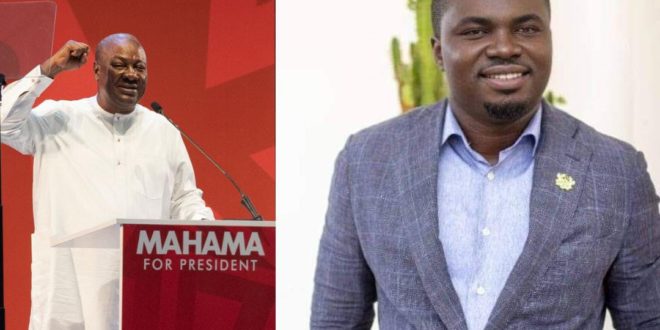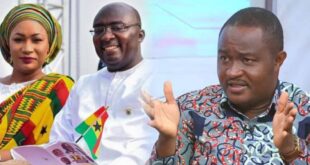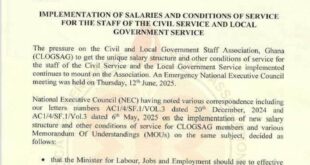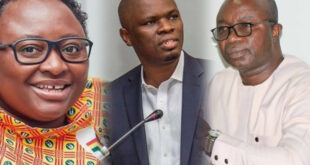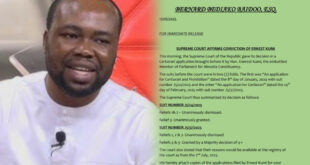In today’s world, Christian religious leaders, particularly in Ghana, often face immense pressure to remain neutral on social and political issues. However, the Bible itself provides numerous examples that underscore the importance of speaking out and taking action. One significant example is the election of Matthias as an apostle to replace Judas Iscariot. This biblical precedent demonstrates that even in matters of faith, processes akin to elections were used, and leaders were called upon to take decisive action.
After Judas Iscariot betrayed Jesus and subsequently died, the early Christian community faced the pressing need to restore their number to twelve apostles. This was crucial because the twelve apostles symbolized the twelve tribes of Israel. Peter, taking a pivotal leadership role, outlined the criteria for the new apostle: the candidate had to have been with Jesus throughout His ministry, from His baptism to His ascension (Acts 1:21-22).
Two candidates were proposed: Joseph called Barsabbas (also known as Justus) and Matthias. The apostles then prayed, saying, “Lord, you know everyone’s heart. Show us which of these two you have chosen” (Acts 1:24, NIV). They cast lots, and the lot fell to Matthias, who was then added to the eleven apostles (Acts 1:26).
The process used in selecting Matthias was both communal and divinely guided. The community proposed candidates based on established criteria, and they sought divine guidance through prayer and casting lots. This shows a structured approach to decision-making, reflecting both human responsibility and reliance on God’s will.
Just as Peter and the other apostles took leadership roles in making crucial decisions, modern pastors in Ghana are called to guide their congregations not only in spiritual matters but also in addressing societal issues. Their leadership can inspire and mobilize communities to act in ways that reflect Christian values. The election of Matthias highlights the importance of being engaged in processes that determine leadership and direction. Pastors today should encourage their congregations to participate actively in civic duties, including voting and advocating for justice.
The apostles’ reliance on prayer before casting lots underscores the profound need for seeking divine guidance in decision-making. Pastors in Ghana should model and promote prayerful consideration of issues facing their communities and the broader society. While some may argue that the church should remain separate from politics, the Bible shows that faith and governance can intersect. Pastors have a responsibility to speak out on issues that affect their congregations and society, such as poverty, injustice, and moral integrity.
The example of Matthias’ election illustrates that biblical leadership involved making informed, prayerful decisions that had a lasting impact on the community. Pastors today should take this as a precedent for their own roles. By speaking out and taking action, they can guide their congregations to live out their faith in meaningful ways that contribute to the betterment of society.
As it is written, “Therefore, brethren, seek out from among you seven men of good reputation, full of the Holy Spirit and wisdom, whom we may appoint over this business” (Acts 6:3, NKJV). This charge to seek out and appoint leaders is a call to action for pastors to engage actively in shaping the moral and social landscape in accordance with biblical principles. By embracing their roles as both spiritual and community leaders, pastors can help create a more just, compassionate, and godly society.
In Ghana, this call to action is particularly relevant. By following the example set by Peter in the election of Matthias, pastors can support leaders like John Mahama, who have demonstrated a commitment to improving the lives of Ghanaians. Through prayerful and informed decision-making, pastors can help guide their congregations in supporting leaders who reflect Christian values and work towards the common good.
John Mahama’s track record of leadership and dedication to the nation stands in stark contrast to the economic mismanagement and unfulfilled promises associated with Dr. Bawumia. Under Dr. Bawumia’s tenure, Ghana has faced economic hardships and a decline in public trust due to unfulfilled promises and misleading information. In these challenging times, pastors have a duty to guide their congregations in discerning leadership that aligns with truth, integrity, and effective governance.
Supporting John Mahama, who has shown a clear vision and genuine commitment to addressing Ghana’s challenges, aligns with the biblical principle of seeking leaders who are just, honest, and capable. By endorsing and advocating for leaders like Mahama, pastors can help steer Ghana towards a future of stability, growth, and ethical governance.
Authored by:
Bright Botchway
National Deputy Director
Traders & Artisans Network
National Youth Wing – NDC
0249999145
THANK YOU for constantly reading stories on MyGhanaMedia.com, a news publishing website from Ghana. Kindly like, follow, comment, and SHARE stories on all social media platforms for more entertaining updates!
Follow us on Twitter: https://twitter.com/
Source: Bright Botchway – Contributor
There are four types of content published on MyGhanaMedia.com daily: curated content; syndicated content; user-generated content; and original content.
 MYGHANAMEDIA.COM Best Source Of Latest News
MYGHANAMEDIA.COM Best Source Of Latest News
